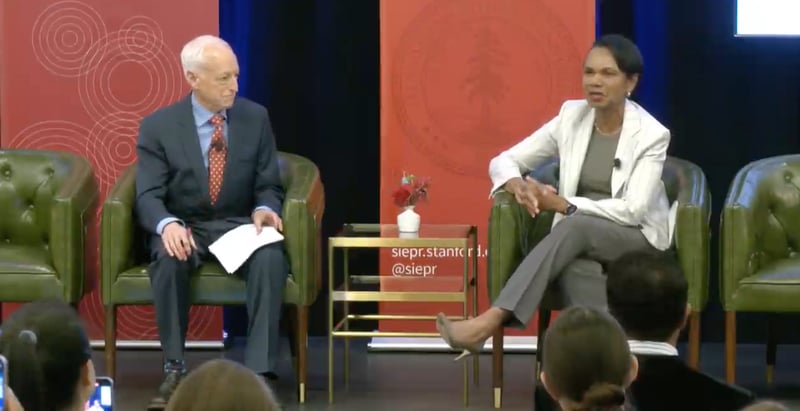PALO ALTO, Calif. (CN) — Artificial intelligence presents a new frontier for technology and improving many industries — but it also is a threat to creative enterprise and informational freedom and security, according to regulators.
Government and tech’s warring interests took the floor Thursday at Stanford University’s Graduate School of Business. Researchers, scientists and executives say that AI opens up a new world of technology, but in its early stages also presents complex challenges for regulating market partnerships and information rights.
Jonathan Kanter, an assistant attorney general with the Department of Justice, said that antitrust laws play an important role in preserving healthy and competitive markets and reducing AI’s threat to the American economy.
AI is troubling for the government, he said, because it relies on large amounts of data to thrive. The technology represents threats to the market of ideas because it leverages ingenuity without compensating the people who produced information first.
“Everyone concerned about human progress should be concerned about that,” Kanter said.
Věra Jourová, vice president of the European Commission, said that the European Union regulates technology heavily to ensure guarding human rights — in contrast to the American ideal of free innovation. Some of the world’s most powerful companies control AI, and regulation could open up markets where it is difficult to challenge those players, she said.
AI also presents an unbridled security risk, allowing for the easy spread of disinformation weaponized by governments across the world.
“I still believe we have a narrow window to set the rules that would allow competition to thrive in the world of AI,” Jourová said.
AI’s development has taken off much more swiftly than those paying close attention to it in the tech center of Silicon Valley predicted. Stanford associate professor of computer science and statistics Percy Liang said that since OpenAI’s ChatGPT opened the door, new models coming out every week make it difficult to control problems with bias and accuracy.
Some say AI’s existential threat to creatives demands regulation to control impacts on creators across the entertainment industries. Duncan Crabtree-Ireland, executive director and negotiator for the Screen Actors Guild, said AI enables a small number of powerful companies to dominate the marketplace by taking people’s work to create for profit, without compensating creators.
“It is not OK to take someone’s face, voice, performance, and use it to create something without their permission,” he said. “Both sides need to have a balance that respects individuals and respects human creativity.”
Michael Fricklas, chief legal officer and corporate secretary at Advance Publications, which owns media companies like Condé Naste, said that AI presents a troubling problems for journalism.
“What we’re seeing today is large amounts of content taken from newspapers around the country, without any of that accountability,” he said.
Others say that the markets and government should get excited about AI’s potential to improve many industries. For example, AI is already embedded in the health care industry, from technology to identify risk factors in patients to compiling datasets.
David Kizner, general counsel and chief privacy officer at Viz.ai, developed algorithms to help alert clinicians if a patient may be at risk for certain health conditions. AI can help providers treat clients more quickly and collect data to explore better care options, he said.
The government is in a “wait and see” mode about AI regulation, according to the Federal Trade Commission’s deputy chief technologist Alex Gaynor.
Gaynor said that there are three factors to determine how AI affects competition: what models are available, how different industries use them and how those models impact competition within distinct markets. The commission considers the government’s role, in a bottlenecked environment controlled by several key players, as monitoring relationships between investors and products.
Andrew Ng, founder of DeepLearning.AI, said that he’s been discouraged to see politicians demonstrate “anti-tech” attitudes.
“When I see politicians like Bernie Sanders call out individual entrepreneurs, call out Elon Musk by name for the sin of being successful and wealthy — and yes, he has committed other sins — I wish America remained firmly pro-competition and pro-tech,” Ng said.

Former U.S secretary of state Condoleezza Rice, now director of the Hoover Institution and professor of global business at Stanford, threw her support behind slowing down regulation of the “arms race.” Calling herself a “dyed in the wool capitalist,” she said the U.S. must not restrict innovation if it wants to stay ahead for national security.
Rice said that America leads the AI race, critiquing People’s Republic of China president Xi Jinping for what she called one of the “dumbest speeches ever made” when he predicted that China would surpass America in AI technology. However, she said America must stay ahead of China with few limitations on innovation.
“The very fact that you will have several entities competing for supremacy, rather than a single dictate from the government, gives us a tremendous advantage,” Rice said.